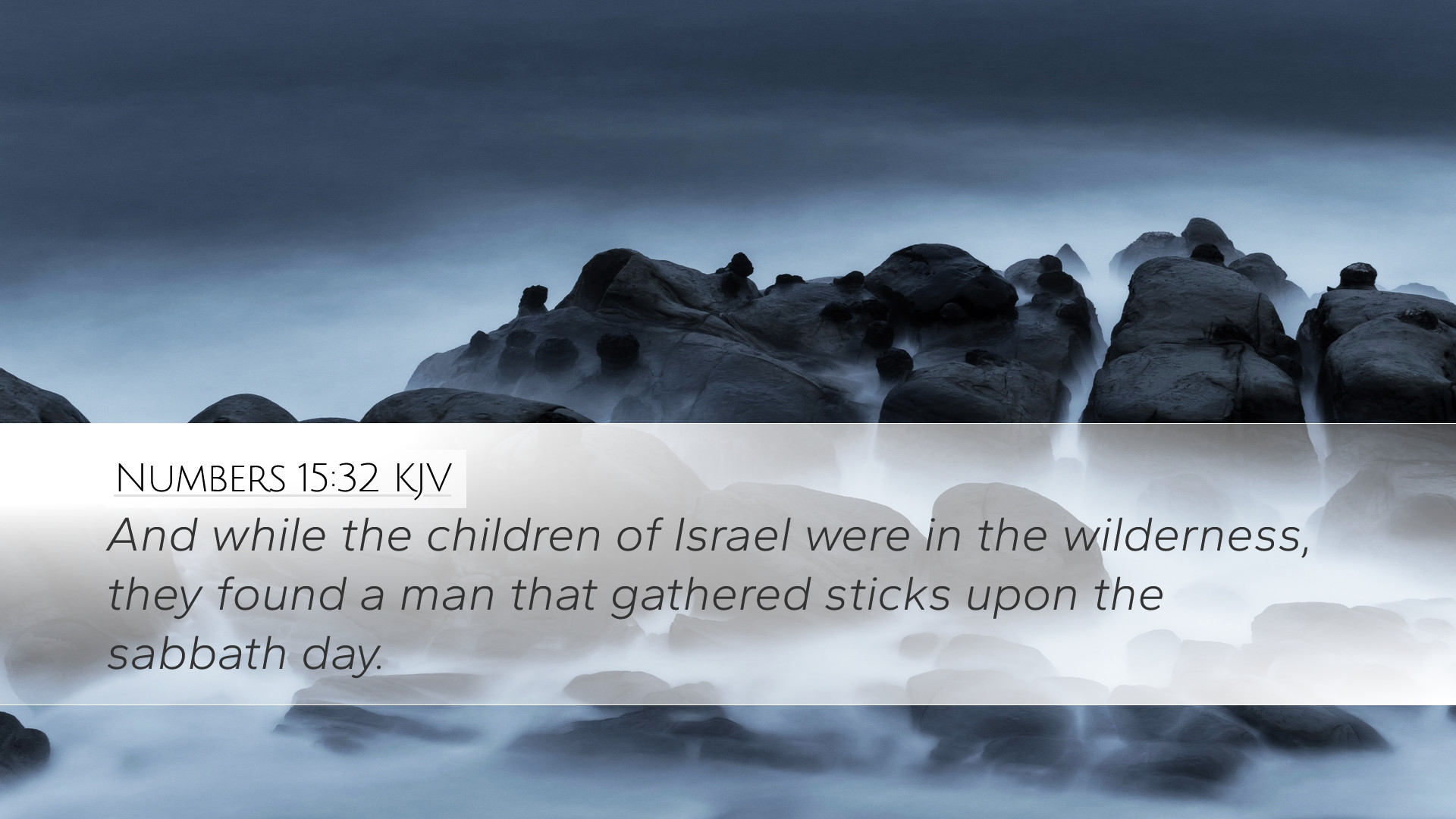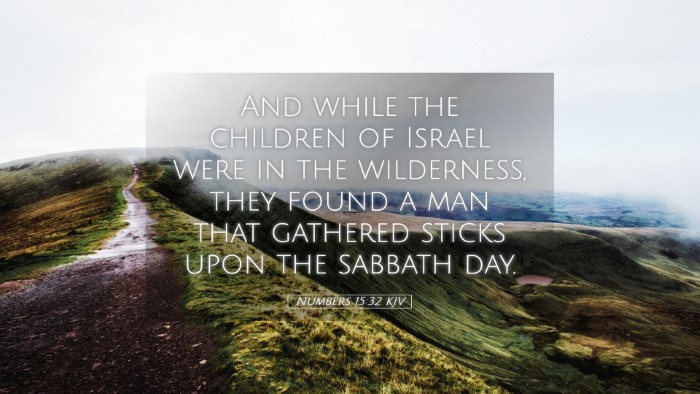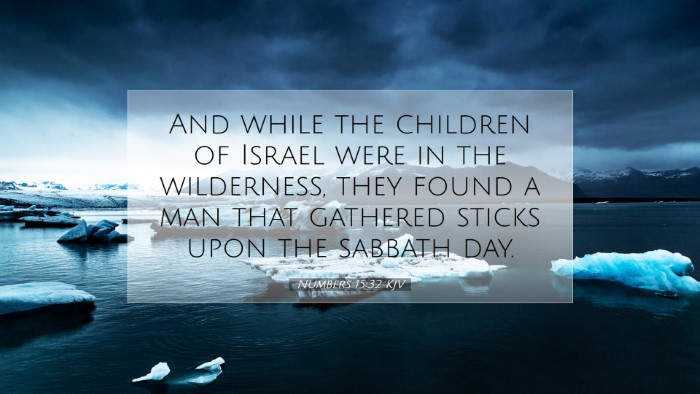Exegesis of Numbers 15:32
Verse Text: "While the children of Israel were in the wilderness, they found a man that gathered sticks upon the sabbath day."
Contextual Analysis
Numbers 15:32 presents a critical moment in the narrative of the Israelites as they wander in the wilderness. This passage follows a lengthy discourse on laws that govern Israelite society, particularly concerning sacrifices, offerings, and the significance of adhering to God's commandments.
In the wilderness setting, the children of Israel were learning to live by faith and obedience in a challenging environment. The act of gathering sticks is more than a trivial offense; it symbolizes the larger theme of covenant fidelity. As noted by Matthew Henry, violations of the Sabbath represent a disregard for God's holy rest and the covenant established with His people.
Commentary Insights
- Disobedience and its Consequences:
Albert Barnes underscores the seriousness of the offense. The man gathering sticks was not merely performing a menial task; he was breaking the fourth commandment, which commanded rest on the Sabbath. This act of disobedience posed a critical question about the nation’s commitment to God’s laws and the communal repercussions of individual actions.
- The Sabbath Principle:
Adam Clarke emphasizes that the Sabbath serves as a divine institution of rest, established for the people’s spiritual enrichment. The gathering of sticks, in this case, was seen as an outright violation of that sanctified day, showcasing a failure not just in action but in understanding the spiritual significance of rest and its implications for one's relationship with God.
- Community and Law:
According to Matthew Henry, this incident highlights the relationship between individual actions and community health. The Israelites were in a unique covenant with God, and their collective identity was intertwined with their adherence to God's laws. Therefore, one man's disobedience could potentially lead to communal judgment.
- God's Justice and Mercy:
This scenario also brings forth God's character as both just and merciful. Albert Barnes posits that while God instituted strict penalties for transgression, this mechanism was intended to maintain holiness among His people. Such judgments served a twofold purpose: punishing the transgressor and deterring others from similar violations while emphasizing God’s desire for His people's sanctification.
Application for Today
The implications of Numbers 15:32 extend into contemporary discussions regarding obedience to God’s laws and the gravity of our actions. Modern readers are called to reflect on the Sabbath's role in their lives—how it signifies rest, worship, and spiritual rejuvenation.
- Spiritual Reflection:
Just as the Israelites were reminded of their covenant with God through their laws, believers today ought to continually reflect on how their actions, even in seemingly mundane choices, align with their commitment to God.
- Community Accountability:
This narrative prompts the question of accountability within faith communities. The gathering of sticks can be interpreted as a reminder for believers to encourage one another to honor God in their daily walk, understanding that individual sin can impact the larger body of believers.
- Understanding Law and Grace:
In light of the New Testament teachings, the relationship between law and grace becomes pivotal. The story serves as a historical lesson on God's holiness while reinforcing the transformative power of grace available through Christ, encouraging believers to live in the fullness of righteousness rather than the condemnation of the law.
Conclusion
Numbers 15:32 serves as both a historical account and a profound instructional lesson. It beckons pastors, students, and theologians to engage actively with the text, gleaning teachings for both individual spirituality and community life. As we study this passage, we are reminded of the solemnity of God's statutes and the unyielding call to live in covenant fidelity, viewing every action through the lens of commitment to our holy God.


